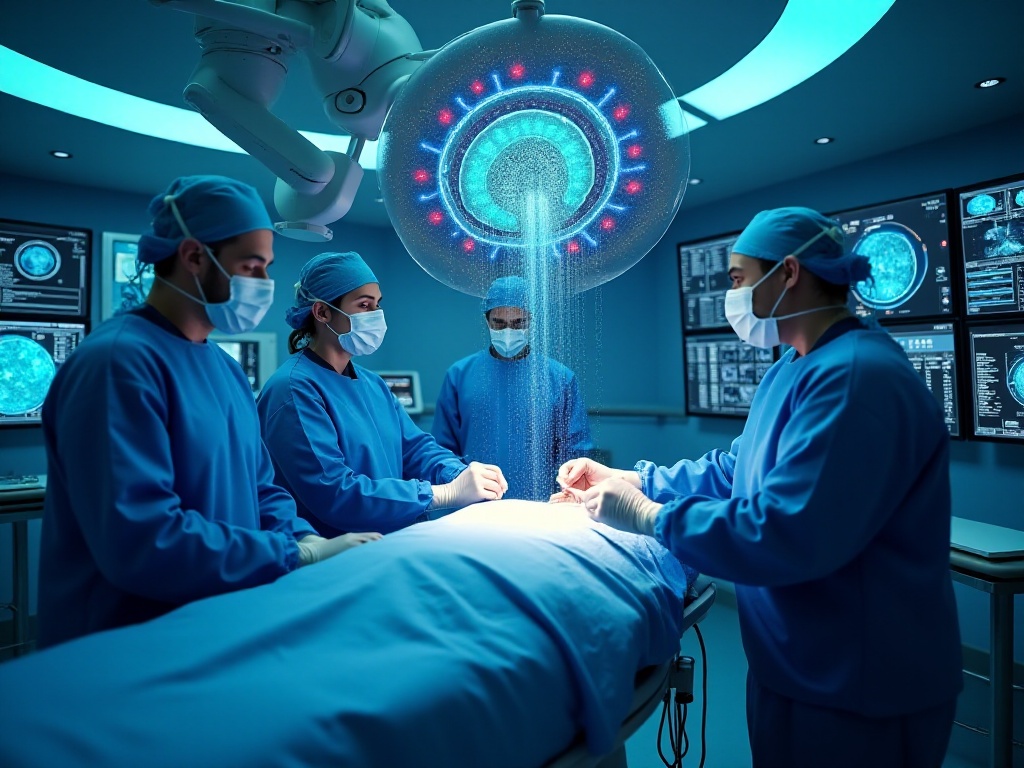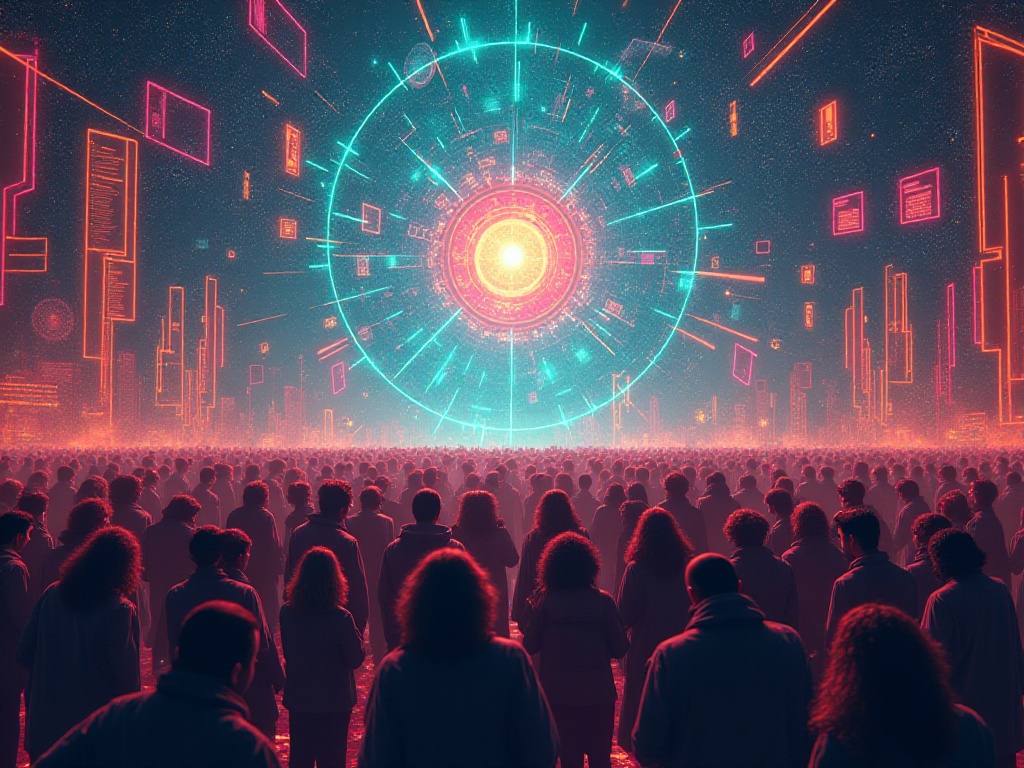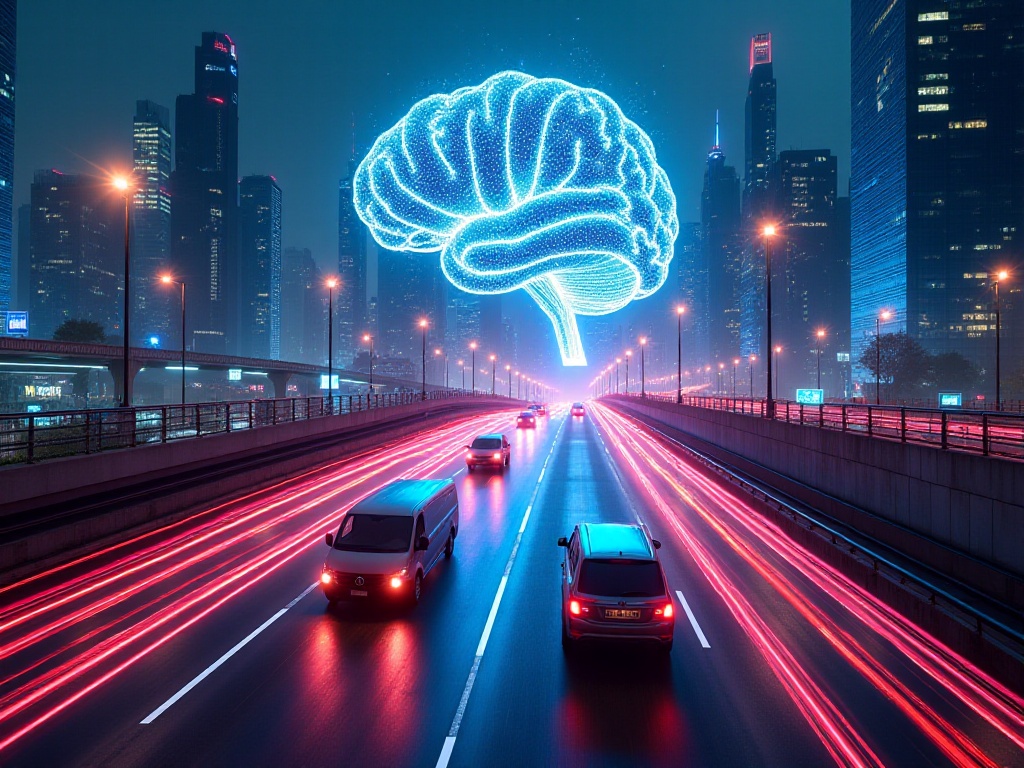Introduction
During a recent routine physical examination at the hospital, while lying in the CT machine, I wondered how to interpret these scans. To my amazement, the doctor used an AI system that analyzed the results instantly! As a tech-savvy post-95s generation person who frequently follows the tech world, I found this fascinating and spent the night researching extensively. Today, I'd like to share my research findings on how AI is transforming the healthcare industry.
Image Diagnosis
Honestly, AI is a game-changer in medical imaging! The AI systems in hospitals today are incredibly powerful, handling CT scans, MRIs, and X-rays in minutes. While doctors used to spend considerable time studying scans on computer screens, AI now highlights suspicious areas within seconds, dramatically improving efficiency!
A fascinating study in The Lancet Digital Health revealed that AI achieved 96.8% accuracy in detecting lung nodules, surpassing the 93.4% accuracy of general radiologists! What does this mean? AI is actually more accurate than some doctors at reading scans! Particularly in breast cancer screening, AI has reduced false positives by 40%, eliminating the need for doctors to order numerous precautionary tests.
During my recent physical, I experienced this firsthand. When the radiologist received my CT scans, they immediately scanned them through the AI system, which instantly marked all areas of concern for the doctor's detailed analysis. The process was incredibly smooth, without the back-and-forth scan reviewing of the past.
Many hospitals have upgraded their AI systems to newer versions that not only detect abnormalities but also automatically measure lesion sizes and generate preliminary diagnostic reports. The system's learning capability is remarkable - it keeps getting smarter with use. For instance, when analyzing lung nodules, it can identify location, determine malignancy, and even predict growth trends. It's truly becoming the perfect partner for doctors!

Personalized Medicine
The AI applications in personalized medicine are jaw-dropping. Modern AI functions like a super-brain, processing massive amounts of medical data simultaneously. It analyzes not just your genetic data but also your medical history, lifestyle habits, dietary preferences, and more to create a treatment plan tailored specifically for you.
I have a friend with diabetes whose hospital implemented an AI-assisted treatment system last year. This incredibly intelligent system automatically adjusts insulin doses based on daily blood sugar levels, exercise, and dietary records. Most amazingly, it predicts potential blood sugar fluctuations based on weather changes and mood swings, making preemptive adjustments. After using this system, his blood sugar compliance rate improved by 35%, significantly enhancing his quality of life.
Beyond diabetes, AI shows remarkable performance in cancer treatment. Many oncology hospitals now use AI systems to develop radio and chemotherapy plans. The system analyzes various patient indicators, including tumor size, location, staging, as well as the patient's physical condition and genetic characteristics, to calculate optimal radiation doses and chemotherapy drug combinations. This precise treatment approach has increased cure rates while significantly reducing side effects.
Another cool application is in chronic disease management. AI systems collect various physiological data through smart bands, such as heart rate, blood pressure, and sleep quality, combining this with medication records and lifestyle habits to predict potential health issues. If abnormalities are detected, the system immediately alerts both patient and doctor for timely treatment adjustments.

Drug Development
AI's application in drug development is truly revolutionary! Traditional new drug development is an extremely time-consuming and expensive process, often taking over a decade and costing billions of dollars. But with AI support, the entire process has been accelerated dramatically!
A recent impressive case involved a domestic pharmaceutical company using AI technology for cancer drug development. They completed the entire process in just 18 months, from drug screening to clinical trials, saving 60% of the time! This is remarkable considering traditional drug development can take eight to ten years.
How does AI achieve this? First, it can simultaneously analyze massive molecular structures, quickly screening potentially effective compounds. While traditional methods might test one compound at a time, AI can simultaneously simulate the effects of tens of thousands of molecules. Additionally, AI can predict how these compounds metabolize in the human body, identifying potential toxic side effects early. This greatly reduces the failure rate in clinical trials.
Even more impressive is AI's ability to learn from failed experiments. For instance, if a compound doesn't achieve the expected effect but shows therapeutic potential for other conditions, AI records this information for future drug development. This learning capability is truly powerful!

Surgical Robots
Speaking of the coolest AI medical applications, intelligent surgical robots definitely top the list! These are truly "super assistants" for doctors, with astonishing precision. Last year, I visited a provincial hospital and witnessed a surgical robot in action - the precision was incredible!
This robot has completed over 500 surgeries, with an impressive error margin within 0.1 millimeters. Can you imagine such precision? A human hair is about 0.06 millimeters in diameter, so this precision is about the width of two hair strands! This level of accuracy is crucial for particularly delicate surgeries.
However, it's important to note that current surgical robots aren't fully autonomous; they're more like super-precise tools in doctors' hands. Doctors sit at control consoles, observing the surgical site through 3D HD display systems while controlling the robot's mechanical arms. The robot filters out the doctor's minor hand tremors, ensuring every movement is precisely executed.
These surgical robots have recently added many new features. For example, they can construct 3D models of surgical sites based on preoperative CT and MRI scans, helping doctors better plan surgical paths. Some robots are equipped with haptic feedback systems, allowing doctors to feel resistance changes during surgery, just like in actual operations.
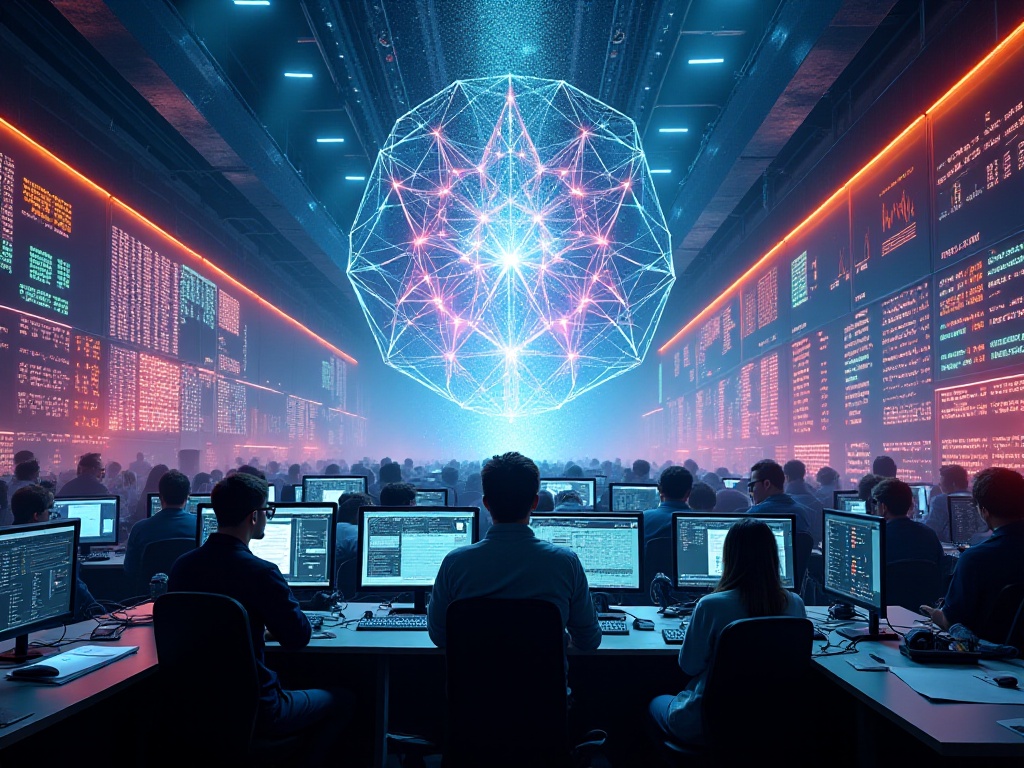
Future Outlook
Honestly, I'm amazed by these AI applications in healthcare. However, I believe AI will never completely replace doctors; it's more like a super assistant. Healthcare isn't just about data and surgery; it requires understanding patients' psychological states and needs doctors' clinical experience and human care.
Of course, AI healthcare faces some challenges. For instance, data security issues, given the private nature of medical data. There's also the question of AI diagnostic interpretability - sometimes even developers can't explain exactly how AI reaches its conclusions. These issues need further research and resolution.
However, I believe these problems will eventually be solved as technology advances. The development of AI in healthcare is progressing rapidly, and we might see even more amazing applications in a few years.
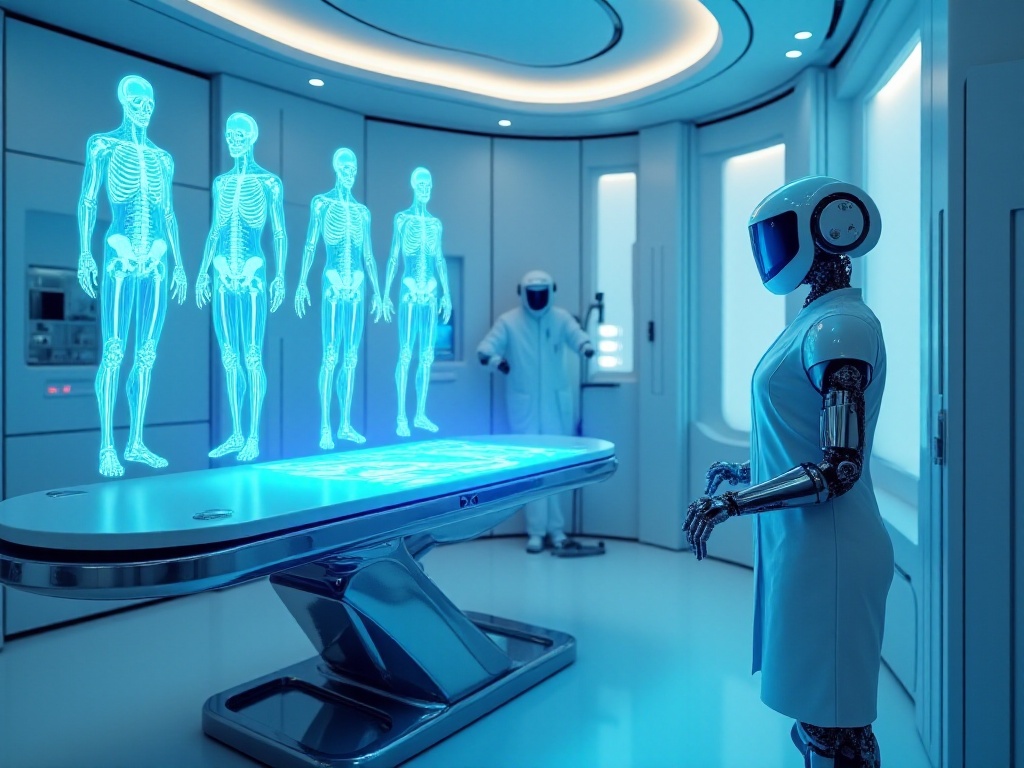
Conclusion
Overall, AI is quietly transforming various aspects of the healthcare industry. From improving diagnostic accuracy to personalized treatment plans and accelerating drug development, AI's performance has exceeded many people's expectations. As the new generation of medical "black technology," AI shows us a brighter future for healthcare.
Finally, although AI healthcare is developing rapidly, remember that maintaining good health is most important. After all, prevention is better than cure! I hope this article helps everyone better understand AI healthcare, and I look forward to seeing more exciting breakthroughs in the future!



